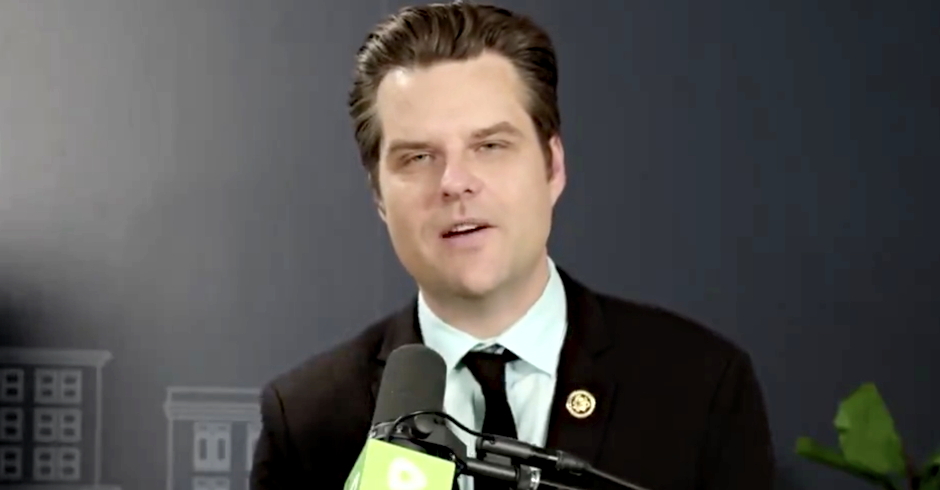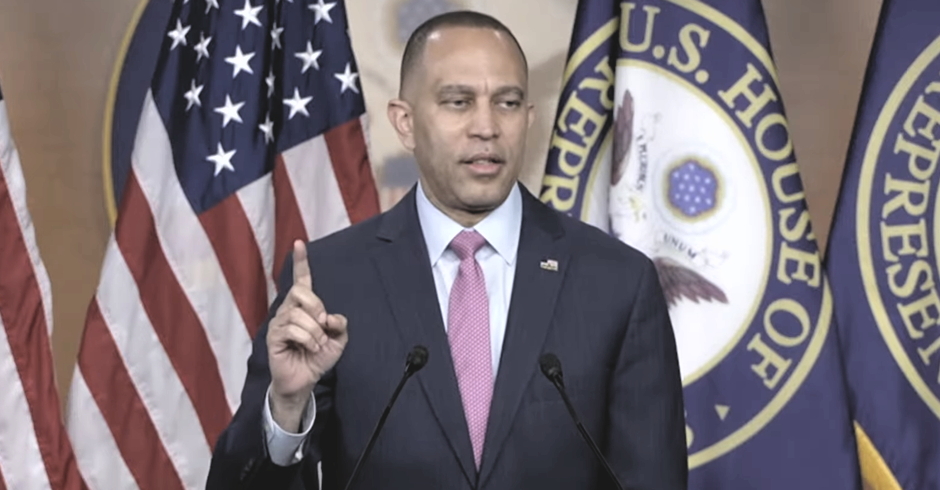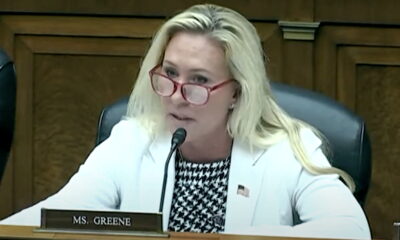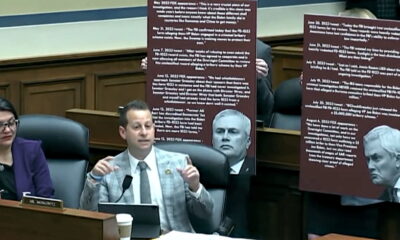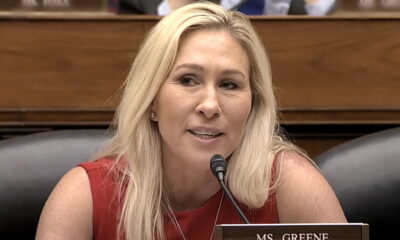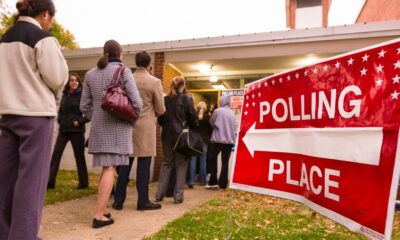Facing the 21st Century: A Brave New World of Challenge, Change and Caution
In the past six months, the “brave new world” of the 21st century has erupted  into massive and immediate political, social, economic, and environmental change, foisting challenges of biblical proportions, all of which elicit concern, caution — and jaw-dropping exhilaration. Tanya Domi explains.
Revolutions, biblical-proportion earthquakes, floods, tornadoes and tsunamis, labor union uprisings, tear-gassing of hundred of public school teachers, humanitarian interventions and the execution of a terrorist who held the world at bay and in fear, for over a decade — even before the 9/11 attacks on America. All these events have transpired in a short six months, with unprecedented speed and alacrity that is at once breathtaking, phenomenal, frightening, jaw dropping and exhilarating.
Hard to believe that just a few weeks ago, President Obama was undoubtedly forced to confront Donald Trump’s orchestrated  “birther” allegations. Trump made the rounds with the media, vociferously asserting that Obama was not a bona fide American citizen. The president released the long form of his “live birth” Hawaii State certificate – and even discussed it live from the White House press room — and of course, the debate continued. It also sickeningly elevated Trump into the same breath as the president.
But the execution of Osama Bin Laden by American Navy Seals a week ago marks the end of not only puffed up and combed over Donald Trump, but also marks the end of a decade of American adventurism that included the prosecution of an illegal war in Iraq and the establishment of a dubious prison for suspected terrorists at Guantanamo, a U.S. Navy base that is home to a military court, strategically calculated by Bush Administration Department of Justice officials to be situated outside the jurisdiction of American courts and beyond the reach of the world’s international legal system.
Â
April’s spring not only unveiled the unseemly image of a puffed up and combed over Donald Trump, but it also revealed that the Republicans have perhaps blinked from pursuing that Medicare “reform” as their inane heads were handed to them in town halls filled with irate citizens during the Easter break.
Â
Also known as “Gitmo,” an island unto its illegal self, it has been criticized by leaders and jurists from every corner of the earth, including by the conservative leaning U.S. Supreme Court in 2007.
All these events have been overwhelming and yet, in tandem, I have been enthralled by them, as major breaking news has regularly washed over my desk since the earliest days of 2011.
Interspersed among these seismic events, included a big moment at home for the LGBT community when Attorney General Eric Holder announced on Feb. 23rd that the Department  of Justice would no longer defend the Defense of Marriage Act in federal court, asserting the Administration’s belief that the law banning gay marriages was unconstitutional. DADT repeal implementation has continued, lagging as the military gets trained on integrating openly gay and lesbian service members in the ranks. First Lady Michelle Obama announced a campaign to support military service members and their families on Feb. 28th, called “joining forces,” to the exclusion of LGB families, because DADT remains a policy.
This unforgiving, accelerated international news tempo, has also been buttressed on the home front, first by the Wisconsin labor uprising against Governor Scott Walker’s efforts to bust the Wisconsin public employee unions in February and March, fueled by the mad hatter “Tea Party caucus” in the Republican led House of Representatives, which seems hell-bent on removing whatever is left of an American safety net. The House nut jobs also seem driven to exploit the mandatory raising of the debt ceiling, come what may, even if their reckless actions give the markets not only jitters, but could drive America’s credit rating into a bigger ditch than any of us could ever imagine in our worst nightmares.
Wisconsin’s push back by labor activists and everyday citizens in February and March happened side-by-side with the Libyan uprising that has now morphed into a third American war, this time unanimously backed by the Arab League (unheard of that Arab nations would agree to declare war on a fellow Arab leader or state) and passed by the UN Security Council for humanitarian reasons to prevent a slaughter in the city of Benghazi, and called for by Libyan rebels who are giving Muammar Gaddafi his biggest leadership challenge in 41 years of unchecked power.
Read: Wisconsin Union Uprising: Why This Is The LGBT Community’s Moment
Poor Japan. Pray for Japan. My heart was in my throat as I watched the news video tape roll, capturing the god forsaken images of a 9.0 earthquake that rocked its islands on March 11, igniting a ferociously powerful tsunami that swept thousands of people out to sea and destroyed whole towns, unrecognizable, save for Google map images of before and after. But the destruction did not stop with the receding waters of the tsunami, as its Fukushima nuclear facility began a partial nuclear meltdown, considered the worst nuclear mishap since the Chernobyl nuclear disaster 25 years ago. Watching these reports, for me, felt like the end of history and perhaps civilization. It was absolutely frightening.
April’s spring not only unveiled the unseemly image of a puffed up and combed over Donald Trump, but it also revealed that the Republicans have perhaps blinked from pursuing that Medicare “reform” as their inane heads were handed to them in town halls filled with irate citizens during the Easter break. American baby boomers actually like Medicare and are paying close attention to the nutty wonders on Capitol Hill. The Republicans are meeting with Vice President Biden, who is negotiating a budget deal for the White House and in the meantime Budget Chair Paul Ryan, a Wisconsinite, has disappeared, perhaps gagged and rolled into sack cloth, buried in a closet in the basement of Longworth.
Â
Watch: Trump vs. Obama – Dueling Birth Certificate News Conferences
I was relieved when Bin Laden was taken out, but I did not share the enthusiasm of American youth, who gathered  in iconic places, like New York City’s Times Square and World Trade Center, as well as Lafayette Park (across from the White House) in D.C. to cheer his death and mark the demise of Al Qaeda. Let us hope that his death and the certain roll-up of his collaborators across the globe creates enough political space for the president to lighten our military footprint in Afghanistan and accelerate troop withdrawals from there and Iraq. The costs associated with the Iraq War alone, called “The Three Trillion Dollar War” in a book authored by Nobel Prize-winning economist Joseph Stiglitz, are unsustainable and are effectively killing America’s future and its dreams. We are broke. Plagued by a soft economy and a weaker job market of more than 14 million persons and many more underemployed, who are working two or more jobs to make ends meet — if they’re lucky to find them. This is the issue that will determine the outcome of the 2012 elections, not the death of Bin Laden.
Americans want to know, and rightfully so, when are we going to build schools, invest in research and innovative technologies and build infrastructure that can support and advance America’s place in a globalized economy. It isn’t America leading the pack these days–the world’s economy is being upended by the powerhouse go-go “BRIC” countries–Brazil, Russia, India and China–are nearly all on fire. The International Monetary Fund recently projected that China could overtake the U.S. as the number one world economy by 2016. Not a happy thought for America.
Nonetheless, the political changes we are watching transpire in the Middle East and North Africa are a once in a 100 to 150 years phenomenon. It is history in the making that will have unknown ramifications for decades to come. This situation presents great opportunity and speculative risk. Will these changes emerge as democratic (small “d”) states and societies, or will they result in the rise of more illiberal states, perhaps Muslim theocracies or Shi’ia dominated governments, which so many Western policy-makers fear?
Read: Wikileaks, Twitter, Cable News Fuel Tunisia Uprising Perfect Storm
Social media platforms Facebook and Twitter, along with the Doha, Qatar based Al Jazzera Arab and English television broadcasters, have emerged as major global media players in facilitating and, some believe, fueling the revolutionary spirit ricocheting across the region. Recognition that Al Jazzera’s English service has “arrived” was acknowledged last week by the Columbia University School of Journalism (disclosure: I work for Columbia University,) who announced it was bestowing upon the once dismissed Arab news service, its highest award for “singular journalism in the public interest.”
The “let them eat cake” policy approach (subsidized food prices have been recently revoked by governments in the Middle East, as inflation and rocketing food prices have hit the world food commodity markets hard) applied by iron fisted despots, is unsustainable now, because of a revolutionary political marriage between massive poverty, rising food prices and a “youth bulge” — majorities of populations are now under the age of 30 for nearly every country in the Middle East and North Africa. No country seems untouched by these combined factors and are consequently facing popular uprisings that are shaking the foundation of Middle East governments, a hybrid of familiar kleptocracies that have maintained power for at least a half of century, if not longer.
Â
Â
And now, adding agony to injury, Uganda’s parliament has toyingly played with the “Kill The Gays” bill. The government seems undeterred in its pursuit of legalized brutality. The U.S. State Department has issued statements condemning the Uganda government’s actions, which have been condemned by numerous governments around the world.
Â
Â
Syria’s iron-fisted President Bashar al-Assad, thought to be one of the most stable (or controlling) governments in the region, during the past seven weeks has sacked his government, announced reforms, while intermittently cracking down by turning tanks on unarmed demonstrators this week. Meanwhile, the president of Yemen has announced he will depart depending on a positive negotiation process with the opposition, and the Bahrain monarchy announced it would lift martial law on June 1st.
And yet these changes have also revealed just how fragile many of these societies are, and the extent to which women are oppressed and routinely subjected to rape, sexual assault and harassment. To wit, the barbaric rape of CBS foreign correspondent Lara Logan by a mob of Egyptian men, during celebrations in Cairo’s Tahrir Square on March 11th. She was rescued by a group of Egyptian women and members of the Egyptian military, who rushed to her aid at the insistence of her TV crew.
Â
https://youtube.com/watch?v=GN2BAcATMHg%3Ffs%3D1%26hl%3Den_US
Â
Logan’s terse press statement about her rape in Egypt’s Liberation Square was followed by a shocking and brazen attack — captured on video that went viral — of Libyan officials slapping and shoving Eman al-Obeidy, a Libyan woman who had sought out foreign journalists in a Tripoli hotel, when she tried to tell them she had been raped by Libyan militia members near Benghazi. When journalists attempted to protect her, they too were shoved and slapped by government press escorts, who brutally dragged her from the hotel to an unknown location. Al-Obeidy recently emerged in public for the first time, in Tunisia, where she said she had sought diplomatic protection for simply reporting a rape–a cautionary tale about the state of these societies.
But back on the home front, not to be out done by the freakish weather in Asia, Mother Nature, perhaps, fueled by hotter temperatures which have produced more moisture, assaulted the South East on April 28th, when 190 some tornadoes swept through six states, killing more than 300 people, and leveling Tuscaloosa, the home of the University of Alabama. Obama got on a plane to view the devastation and immediately declared significant parts of the south a disaster area. Now we are faced with a flooding Mississippi River — at levels not seen since 1927 — which has risen to more than 48 feet above normal levels in Cairo, Illinois, and Memphis, Tennessee, that are expected to crest in two weeks in New Orleans. Poor New Orleans.
And now, adding agony to injury, Uganda’s parliament has toyingly played with the “Kill The Gays” bill. The government seems undeterred in its pursuit of legalized brutality. The U.S. State Department has issued statements condemning the Uganda government’s actions, which have been condemned by numerous governments around the world. But perhaps in the end, will love conquer all? It seems so in Brazil, whose Supreme Court on May 5th, decisively voted by a overwhelming margin of 10-0, to extend equal legal status and rights and benefits to gay partners in stable relationships, including inheritance and pensions. Brazil is home to the largest Roman Catholic population in the world. So Pope Benedict XV, go eat your miter!
Â
 Tanya L. Domi is an Adjunct Assistant Professor of International and Public Affairs at Columbia University, who teaches about human rights in Eurasia and is a Harriman Institute affiliated faculty member. Prior to teaching at Columbia, Domi worked internationally for more than a decade on issues related to democratic transitional development, including political and media development, human rights, gender issues, sex trafficking, and media freedom.
Tanya L. Domi is an Adjunct Assistant Professor of International and Public Affairs at Columbia University, who teaches about human rights in Eurasia and is a Harriman Institute affiliated faculty member. Prior to teaching at Columbia, Domi worked internationally for more than a decade on issues related to democratic transitional development, including political and media development, human rights, gender issues, sex trafficking, and media freedom.
Read Tanya Domi’s most-recent previous article at The New Civil Rights Movement, “Budget Showdown: Senate Democratic Women Preserve Party’s Principles.”
Â
(image)

Enjoy this piece?
… then let us make a small request. The New Civil Rights Movement depends on readers like you to meet our ongoing expenses and continue producing quality progressive journalism. Three Silicon Valley giants consume 70 percent of all online advertising dollars, so we need your help to continue doing what we do.
NCRM is independent. You won’t find mainstream media bias here. From unflinching coverage of religious extremism, to spotlighting efforts to roll back our rights, NCRM continues to speak truth to power. America needs independent voices like NCRM to be sure no one is forgotten.
Every reader contribution, whatever the amount, makes a tremendous difference. Help ensure NCRM remains independent long into the future. Support progressive journalism with a one-time contribution to NCRM, or click here to become a subscriber. Thank you. Click here to donate by check.
 |

